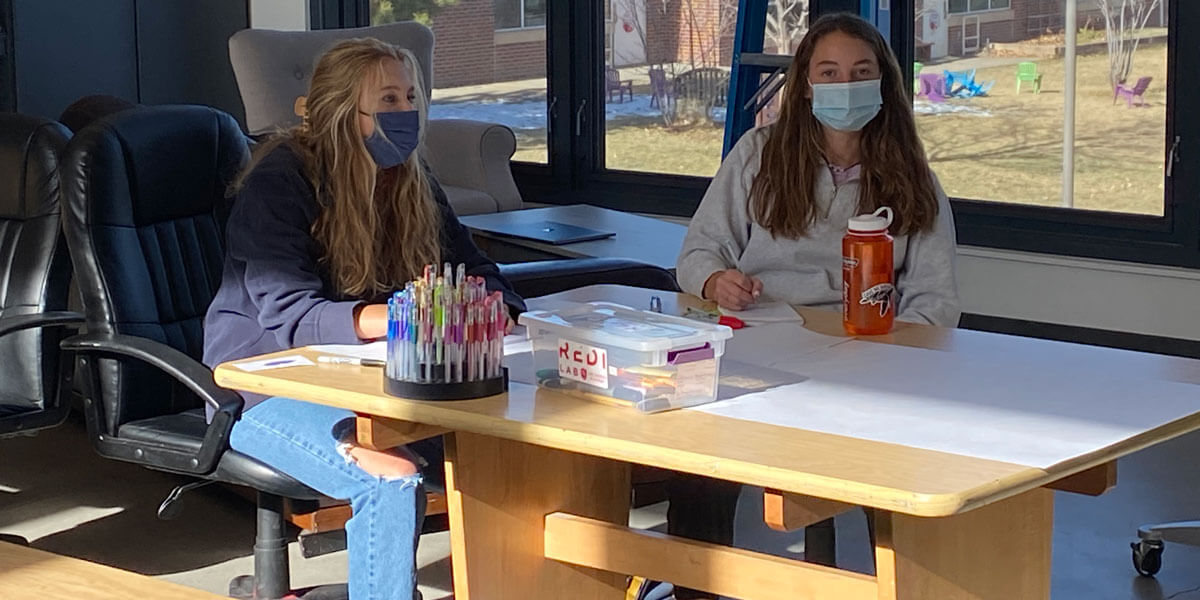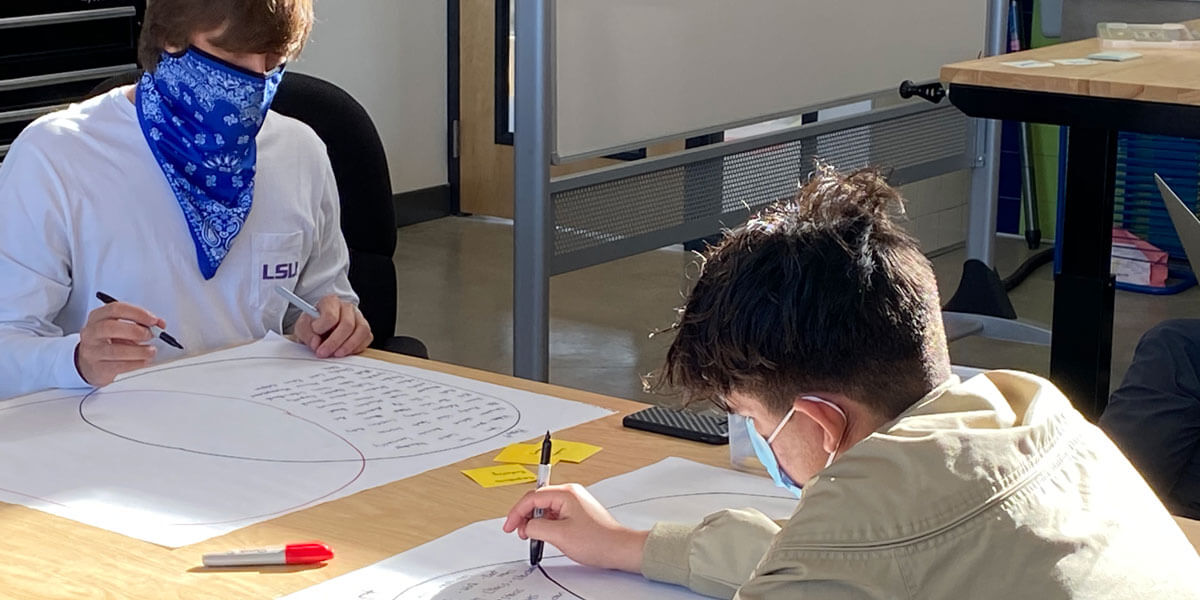When Senior Ulisses Rico Moncada started REDI Lab during the second semester, he had no way of knowing that it would lead him to an internship at Comcast, where he is currently working on an English/Spanish Public Service Announcement about recognizing disparities and trusting science during COVID-19. “This was amazing,” he wrote REDI Lab Coordinator, Tom Thorpe. “I have full control of the ship. This is truly about the story I want to create, and they are helping me with the production.”
Rico Moncada was one of six students in the pilot program of Colorado Academy Seniors enrolled in REDI Lab. Originally designed as a one-trimester course of open-ended, self-directed, project-based learning for Juniors, REDI Lab has proved so popular that Colorado Academy expanded the offering to Seniors. The Senior-level course focuses on entrepreneurship and design, asking students to identify a problem, find a solution, and name a person who would benefit from this project—all using local resources.
“We consider this ‘place-based education,’” says Thorpe. “They are getting ready to head off to college in a new place, but this asks them to identify a problem that interests them now and build a solution through a local network.”
Perhaps it was pure chance, or perhaps it was COVID-19 creating changes in their own educational experience, but all the Seniors in the class explored new learning experiences, looking for ways to share access to education with more people.
“I think, that to some degree, they felt fortunate they could keep attending school during a pandemic,” Thorpe says. “I think as they approached the end of their education at CA, they asked themselves, ‘What would l like other people to know, and how can I learn by communicating that information?’”
The six students documented their projects in a video, summarizing their work.
The Senior entrepreneurs
Like Rico Moncada, Harrison Buecking also found a market for his REDI Lab idea. He started off wanting to create a CA Varsity electronic sports (e-sports) team using video games. That idea evolved into an e-sports summer camp. He pitched the idea to MindSpark Learning, and they promptly offered him complete funding to run the camp this summer. “On his first call with MindSpark, the team member taking the pitch was blown away,” says Thorpe. “She thought she was just being nice listening to what a kid had to say. Instead, she got a sophisticated pitch that she could take back to her team.”

Nathalie Maffei and Kendall Smart decided to address two issues: the challenges of learning over Zoom during the pandemic and the fact that every student learns differently. They created an app that connected younger students at CA to optional tutoring, using individualized approaches to learning. “I learned to take a step back from grades to better understand the content I was being taught and the purpose of learning it,” says Maffei. “I also improved my collaboration skills and my open-mindedness in the classroom.”
Julia Hall started off thinking she would create videos about cooking. With the guidance of the Upper School REDI Lab faculty, including Thorpe, Sean Gallop, and Neethi Venkateswaran, she realized she really wanted to create videos that would help other people (and herself). The result was a branded platform for students and teachers to create what are essentially “How to survive when you leave home” videos, like “How do you handle money?” and “What do you do if you are in a car accident?” Hall says REDI Lab gave her the opportunity to see the “big picture” and understand that “there are some things you can’t do by yourself, and it’s okay to ask for help.”

Marin Bomgaars was in the unique position of taking REDI Lab as both a Junior and a Senior. In her Junior trimester, she began a broad investigation of data science. In her Senior year, she “hypothesized, researched, and presented data behind learning, in the hopes of improving student-teacher relationships.” Her research led her to look at ways to balance “efficiency and equity” in a classroom.
“As Colorado Academy students, we all have the skills and knowledge to think deeply about a problem we are passionate about,” says Bomgaars. “REDI Lab is a space and community do to so. All the forms of reflection inherent in the REDI Lab process have helped me develop skills that will be crucial when I go off to college, where the large, diverse student body thrives on cognitive individuality.”
